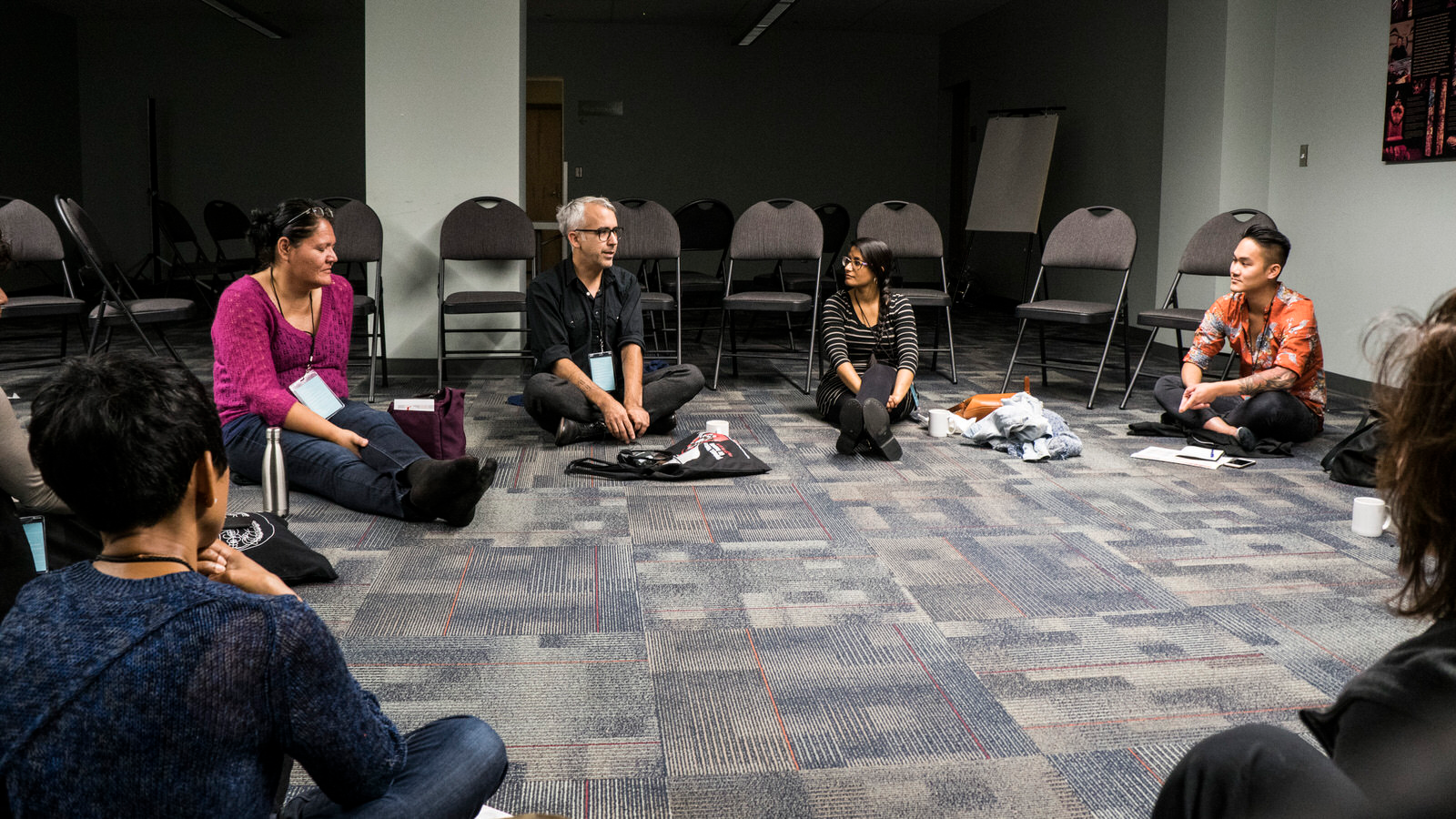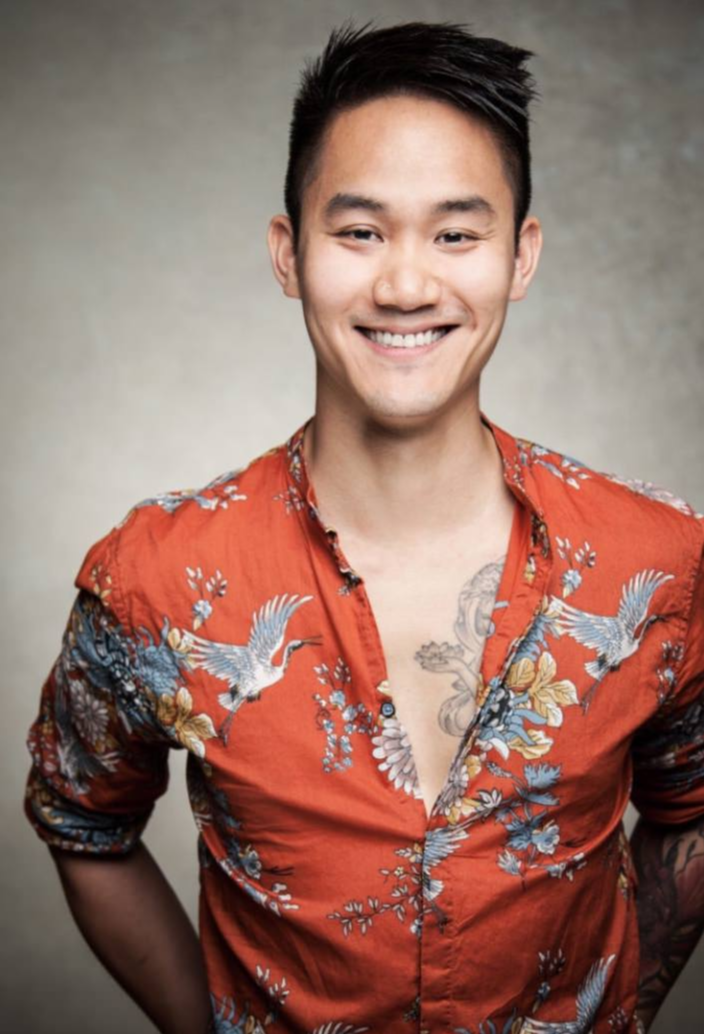 Conversations + Creations session during the PC/Cp Gathering
Conversations + Creations session during the PC/Cp Gathering
2017 on Lekwungen territory. Photo credit: Kirk Schwartz.
The session I led was on Community, Ethics, and Art. We had a small group of about fifteen people in the session, made up of people from different backgrounds, including Indigenous folks and People of Colour. A theme that emerged from the discussions was on the notion of “accountability” and where it lies. Are we accountable to communities? Or are we beholden to funders? How are funders accountable to community? Some of the challenges raised in the discussion addressed the ways that requirements for arts grants often direct the outcomes of the arts, as artists often tailor their work to fit the specifications of grants. In the long term, this places the direction and accountability from the artist’s work to the funder. Scarcity of arts funding also constrains the artistic agency that artists have access to.
Arts that are accountable to community was also a big discussion that came out of the group. Many of the people in the discussion were doing work that is deeply embedded in community, so there was a lot of expertise in the room around community engagement, and this whole idea of “community engaged art.” One question that was raised was the fact that the arts should be connected to community, should be accountable to community, and should engage community. There was also a debate around how art is always political, and we can’t create art that isn’t, because arts practice always comes out of a particular context. This also adds to the fact that if art is always political, then it must be accountable to the communities within which it exists. Some questions that emerged from this discussion included: how can artists respond to community needs? How can communities be a part of the direction of artistic practice?
A lot of discussion repeatedly gravitated toward the notion that funders hold purse strings, and the constraints that this places on artists being accountable to communities. It was hard to steer the conversation beyond this, because whether it is the process in which the art is made, the intention behind the artistic expression, or the motivation and ethics of the artist, the product and arts practice is ultimately contingent on the guidelines dictated by funders.
Along these lines, some of the suggestions that came out of the discussion revolved around how arts funding could transform to allow for malleability towards community needs. If funding for arts could allow space for artists and communities to determine outcomes, the relationship between artists and communities would also be transformed.
There was also a suggestion along the lines of funders looking at qualitative aspects of arts to determine successful outcomes, for example, using relationship building between the arts, artists, and communities act as legible measures of success. A related example would be acknowledging the ways in which accountability between artists and community could also be seen as a measure of success for an arts project. Rather than steer towards quantitative measurements that emerge from neoliberal pressures for “return on investment,” qualitative evaluations on the nuances of community engagement and accountability could also allow for a more ethical arts community.

David Ng is a queer feminist, and is the co-founder of Love Intersections, a media arts collective made up of queer artists of colour. David is a passionate social justice advocate, and has co-founded and worked on numerous arts based anti-oppression campaigns and projects ranging from feminist anti-violence campaigns, decolonization work, cultural safety, anti-racism, and other forms of social justice art and activism.